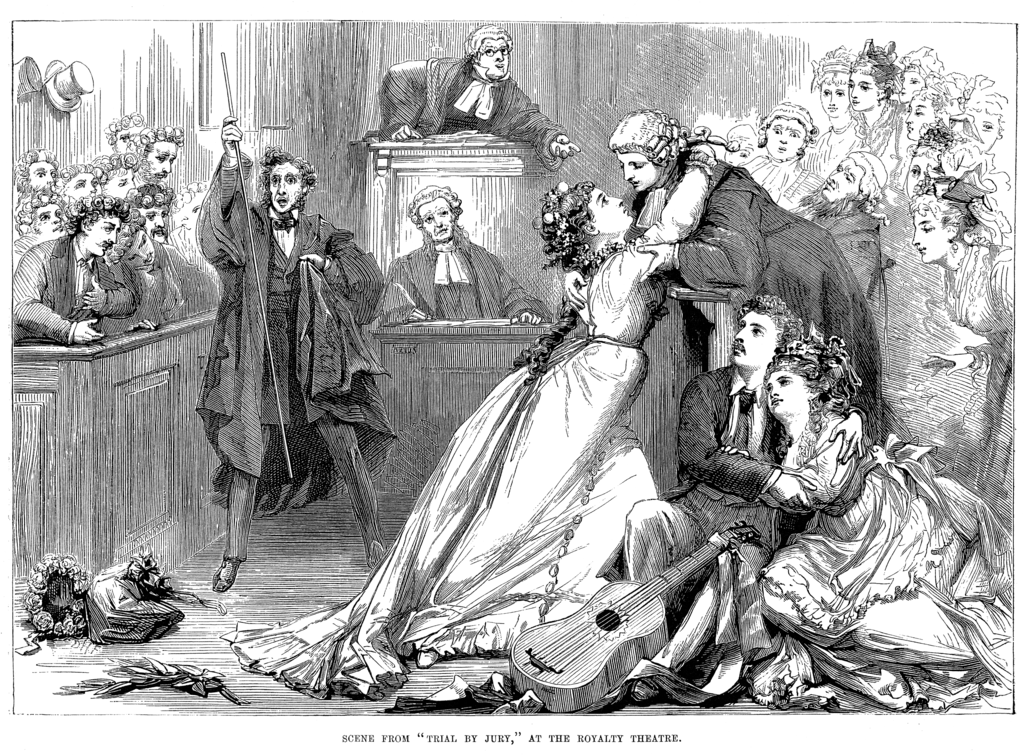|
Issue 10, Volume 17 JAMES SUTHERLAND The coronavirus pandemic has sent shockwaves through just about every aspect of society. It has already resulted in many thousands of deaths worldwide, overwhelmed hospital systems, caused mass unemployment, and is certain to bring an end to Australia’s almost 3 decades of uninterrupted economic growth. In light of such devastation and destruction, each and every one of us as citizens have experienced substantial disruption, and we have adapted our lives accordingly. The Victorian justice system is no exception to this phenomenon At a recent special sitting of the Victorian Parliament, an omnibus bill was passed which contained several key temporary reforms to ameliorate the difficulties currently facing the Victorian justice system. One of the most significant reforms passed was the introduction of judge-alone trials for indictable criminal matters.
Prior to the passage of this bill, Victoria was one of only three jurisdictions in Australia (along with Tasmania and the Northern Territory) that prohibited judge-only criminal trials. The fact that the Victorian bill has a 6-month sunset clause indicates that this measure has been introduced to respond to a temporary crisis. As a consequence of social distancing requirements, jury trials are now unable to be held for criminal matters. So, judge-alone trials are the only means through which the criminal justice system can hope to avoid a crippling backlog of cases. Sceptics of judge-alone trials frequently argue that such proceedings are an affront to our constitutional guarantee- under section 80 of the Australian Constitution- to be judged by our peers in criminal matters. However, this argument misses the point entirely. For a judge-only trial to be permitted in an indictable matter under these reforms, both the defence and prosecution must consent. The jury system undeniably plays a crucial role in maintaining the democratic legitimacy of our justice system through community involvement. Indeed, in his dissenting judgment in Lindy Chamberlain’s High Court appeal, Justice Lionel Murphy noted that the jury system ‘serves as a strong antidote to the elitist tendencies of the legal system’. Nevertheless, in and of itself, this should be no reason to deny defendants in certain cases the ability to waive their right to a jury trial. In the modern world of social media saturation and almost universal access to the internet, it is particularly difficult to prevent jurors from paying regard to inadmissible evidence in cases involving high-profile defendants. Even before they have stepped into the jury box, many jurors will inevitably have strong opinions and prejudices about particular high-profile defendants. This is not to say that judges are immune from prejudice either. However, empirical studies have consistently shown that legally-trained judges are more capable of disregarding their own personal views and inadmissible evidence when deciding questions of fact. While the COVID-19 pandemic was undoubtedly the immediate catalyst for the introduction of judge-alone trials, there has been active debate on the topic for some time now. The trial of Cardinal George Pell illustrated the great difficulties associated with running high-profile jury trials. Draconian suppression orders meant that the verdicts could not be reported on until months after the fact (when the second set of charges were withdrawn). In the end, the High Court threw out Pell’s conviction and the jury’s verdict in a unanimous decision. We will never know whether Pell would have been acquitted at trial had the matter been heard by a judge sitting alone. What is certain, however, is that the process would have been much less arduous for the justice system. Without the draconian gag orders, the media would have been able to report on the matter and keep the public informed of key developments. While the introduction of judge-only trials in Victoria has not been permanently enshrined in law, there is a strong case for doing so when the temporary measures expire in six months’ time. There will undoubtedly be more high-profile cases like Pell’s in the future. The only way to guarantee open justice and fairness in such high-profile cases is to try them by judge-alone. James Sutherland is a second-year JD student.
Jerry
5/5/2020 08:01:55 pm
Given that the press restrictions didn't work, and it's nigh impossible to keep the jury from the influences of the outside world, this definitely seems like the best way forward. Comments are closed.
|
Archives
October 2022
|



